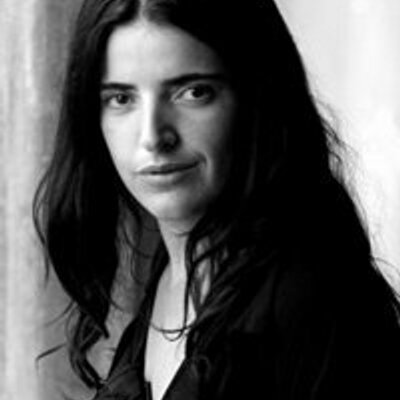If This is a Lament


The Poetry Translation Centre in London have paired Bejan with Shetland-based TS Eliot Prize winning poet Jen Hadfield to make her work available in English. Neu! Reekie!’s Creative Director Kevin Williamson spoke with her prior to her arrival in Scotland.
KW: Hi Bejan. We’re very much looking forward to seeing you in Edinburgh this Thursday at Neu! Reekie! And thank you for agreeing to this interview for Bella Caledonia. Have you read Bella before? And do you follow political and cultural developments in Scotland?
BM: Yes I have heard about it but to be honest I have not had the opportunity to follow it. As far as I know you are focusing on political topical events, in our social media time everything is fast and consumption based – it is nice to hear that there are magazines still interested in topical events.
KW: Tell us a little about yourself, your background, and where you’re at geographically and creatively?
BM: Please see my biography below:
“Bejan Matur is multi-award-winning Kurdish poet and writer, currently living in London. She is a leading figure in the bold new poetry emerging from the Middle East. Her poetry has been translated into 20 languages. Her poetry engages directly with the struggles of her people, and yet there is also a mysticism in her writing, a closeness to nature, an embracing of mythology. Her first collections of poetry, Rüzgar Dolu Konaklar ( Wind Howl Through the Mensions 1996) won several literary prizes. She has also written prose books. And works for the stage.”
She is the author of eight further collections. Including;
Tanr? Görmesin Harflerimi (God must not see the letter of my script, 1999)
Onun Çölünde (In His Desert, 2002)
Brahim’in Beni Terketmesi (How Abraham Abandoned Me, 2008)
Kader Denizi ( Sea of Fate, 2009)
Son Da? (The Last Mountain, 2015)
Aşk (Love poems, 2016)


BM: I was born into a world which was quite diverse. I grow up with two languages. Kurdish is my mother tongue. Turkish was the official language which I started learning at the primary school. In fact I as a Kurd did not have a choice to have an education in Kurdish. Still we don’t have education in Kurdish in Turkey.
Based on this reality I wrote my poetry and prose in Turkish. But recently few years ago I started writing in my mother tongue also. To be able to survive as a human in the middle of the conflicting identities such as Turkish, Kurdish, alevi, sunni I choose to incorporate this elements of my identities and expressed in my poetry. It was not a easy proces for sure. But to be able to go beyond the limited identities. we need to face this challenge.
I saw my minority identity in the majority and majority identity in minority. And I realized that we don’t need more separations as there are enough separateness/ divisions in the world. I believe the minorities can teach the majority how to be united or how to became whole!
The representatives of the majority are surviving through separateness by putting inequality and injustice into practice. Actually we as minorities we can teach them the real meaning of being united. because it is their inequalities that separate us from them! For example we are not allowed to have education in our language, we don’t have same civil rights in many fields. we are scared to speak to sing in our language. By not allowing all these; they are separating us!
We demand equal rights. because we want to be included in the system as a citizen with equal rights. So who is asking for union? And who wants to separate? Maybe we need to rethink and explore what it means being united or separate? Looking back now I can see that I have unconsciously integrated this conflicting identities of mine and expressed through my poetry.
I am able to see this more consciously now.
KW: Jen Hadfield won the TS Elliot Prize for poetry in 2008. She worked with you on the English language translation of IF THIS IS A LAMENT and will be reading the English translations on Thursday.
How did you come to work with Jen and how did the Translation process work?
BM: To work with Jen was such a pleasure.I really enjoyed playing with words during the translations with her. The Poetry Translation Centre was looking for a poet translator whose poetry is grounded in nature. When Jen’s name was suggested by them I said ‘yes she is the one’ ! Not only her translations I also liked her reading very much. It has been a great pleasure for me to share the stage with her.
KW: Tell us a little about the poets who have inspired or influenced you and something about the poetry you are currently working on?
BM: In our tradition there is a saying during the medrese education (which is a religious school) the teachers ask students to memorize 1000 line of poetry. When the students come back with the memorized poetry than the teacher will tell them “now you should delete all the memorized poems in order to create your own poems.” This saying was my guide.
I love reading poetry (original or translated). but I cannot say that I have a “master’’ poet!
Currently I am working on my Kurdish poetry book.
KW: Thank you so much for speaking to Bella. Look forward to seeing you on Thursday.
Get your tickets for Neu! Reekie! Tongue and Groove at Summerhall with Bejan Matur, Jen Hadfield, Ela Orleans and Emma Woods here.
